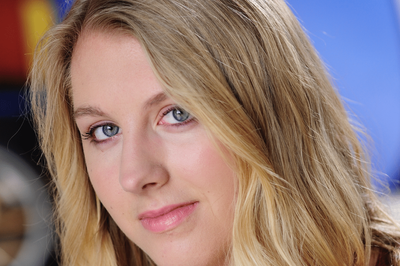Bisexual survivor of domestic violence launches campaign for film
I spent the year of 2020 the way most people did: Isolated. For me, this was both unbearable and necessary, because the year of 2020 was also my year of intensive trauma therapy. In the winter of 2019, I had been sexually assaulted at work, which left me unemployed and barely able to move from my spot on the couch. My therapist, someone I had been seeing off-and-on since adolescence, told me that I needed to act now to seek recovery, because the symptoms of my previous experiences were only going to get worse.
With that, I began weekly sessions in EMDR (a technique used to reprocess traumatic memories), and my therapist guided me as we dove into some of my worst memories. Included in these was an abusive, terrifying relationship I had escaped years before and mentally avoided ever since. As I worked through therapy, stuck inside with nothing but my own thoughts, I also began to write. Immediately, I was drawn to fantastic, action-packed scenarios.
I wanted a bisexual character who reflected my experience, without centering conflict or judgement around her sexuality. I wanted to write a character who was torn between the person she was before her trauma and who she became after. I wanted her to be funny and lighthearted and loving and also angry and bitter and brutal. But as soon as I thought, I also want her to be a survivor of domestic violence, the entire project changed.
With film being a show-don’t-tell medium, I found myself writing scenes of abuse, casting a character to be my character’s abuser, and soon, the project became a source of my depression rather than a relief from it. It was when I asked myself how severe the abuse had to be for the audience to feel sympathy towards my character that I began to question my motives. Was I showing graphic, violent scenes simply because every time I had seen domestic violence on-screen, that’s all it ever was? Could my writing not have a sense of humor anymore because I chose to discuss a heavy topic? And furthermore, why I was giving screen time to my abuser? I wasn’t in therapy now because he was still antagonizing me; I was in therapy because I hadn’t healed from the after-effects. Writing about him was like writing a prequel to the story I actually wanted to tell.
This opened the door to a new way of writing about trauma, and as I worked deeper through therapy, the story became more layered and complex. I wrote and re-wrote, going back and forth between character motives and my own therapy breakthroughs for nearly a year. As the EMDR began to pay off, I started sleeping better, stopped searching for constant distraction, and the hyper-vigilance began to ease. I also started to think about production.
After graduating from film school in 2018, I had written, produced, and acted in two projects: a web series and a short film. They had been made on the cheap, calling in favors from film school friends and pitching in whatever extra money I had from working my retail jobs, and had premiered at a few local festivals with no long-term plans for exposure. This one felt different. One of the most painful parts of my experience dealing with my trauma was the profound isolation of feeling like the only one on the planet who has endured it. Watching media that focused on the details of abuse only made that feeling worse, because if I thought one woman’s experience was worse than mine, then I felt I had no right comparing my pain to hers, and vice versa. But I had written something that included no defining details, and I had also made it more accessible to people like me, who struggled to watch stories of abuse and trauma because of triggering, graphic scenes.
This inspired me, and I began connecting with other filmmakers and put together a crew that highlighted female, non-binary, queer, and POC creators. As I built our crowdfunding campaign, I focused on building our future audience. I wanted the series to feel accessible to anyone who related to it, whatever the source of their pain and however ugly the result. I never thought I would work so hard to share such an intimate part of my life with people I don’t know, but the ultimate gift that this project gave me was the ability to talk about what happened and process it from a safe distance. I hope that by finding this project’s audience, it can share this gift with countless others, and make them feel a little bit less alone.
Click here to support Chloe's series Trauma Bonded. Pledge, follow on Seed & Spark, and share to help bring it to life!
